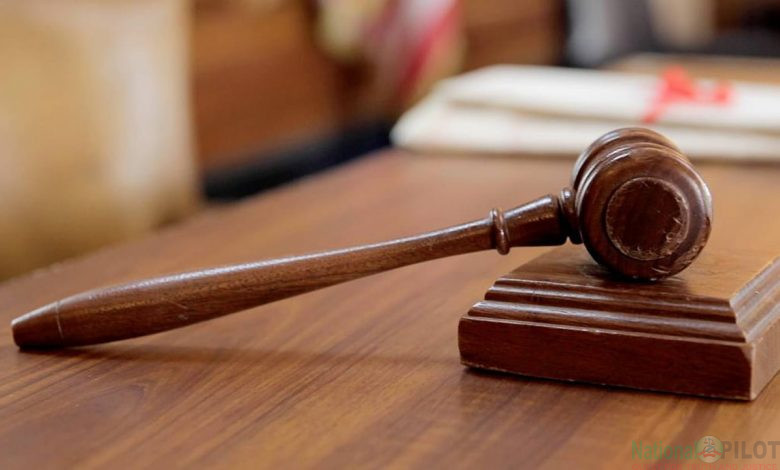LANDMARK JUDGEMENT

OKO & ORS v. A.G., EBONYI STATE (2021) LCN/4983(SC)
In The Supreme Court
On Friday, June 04, 2021
SC.565/2015
Before Our Lordships:
Mary Ukaego Peter-Odili – Justice of the Supreme Court of Nigeria
John Inyang Okoro – Justice of the Supreme Court of Nigeria
Ejembi Eko – Justice of the Supreme Court of Nigeria
Ibrahim Mohammed Musa Saulawa – Justice of the Supreme Court of Nigeria
Adamu Jauro – Justice of the Supreme Court of Nigeria
Between
Hon. Francis Aluu Oko 2. Hon. Joseph O. Chukwu 3. Hon. Ama O. Uche
(For themselves and on behalf of All Councillors of Ebonyi State Who
Served For The Period Of 1999-2002 And Whose Certificates Of Return
Are Hereto Annexed) – APPELANT(S)
And
HON. ATTORNEY-GENERAL OF EBONYI STATE – RESPONDENT(S)
Appearances:
- E. AJOGWU SAN. – For Appellant(s)
HON. AUGUSTINE NWANKWAGWU ESQ.
Attorney-General for Ebonyi State – For Respondent(s)
Ibrahim Mohammed Musa Saulawa, J.S.C. (Delivering the Leading Judgment)
The present appeal is consequent upon the judgment of the Court of Appeal, Enugu Judicial Division, delivered on July 15, 2015 in appeal No. CA/E/203/2013. By the said judgment the Court below, Coram M.A Oredola, T. S. Yakubu, and M. O. Bolaji- Yusuff, JJCA, dismissed the Appeal for lacking in merits.
A sole issue was raised by the Respondent for the determination of the said preliminary objection:
Whether the combined operation of the Limitation Law (Cap. 102) and Ebonyi State (ApplicabIe laws) law (Cap. 40), laws of Ebonyi State of Nigeria, 2009 does not divest this Court of jurisdiction to hear and determine this action as presently constituted, same having been filed well over five years after the accrual of the cause of the action.
Conclusively argued on issue 3 that it is the cause or action and not the accrual of right that is subject to limitation law, (and the limitation Act) which limits action after 5 years have elapsed does not affect the instant suit.
The Court is urged to so hold. Conclusively, the Court is urged upon to allow the appeal, set aside the judgment of the Court below and direct that the Appellants are within their time to bring the instant action.
In the circumstances, the Court is urged to expunge the Appellants’ argument seeking exemption of the case thereof from the application of the Limitation Law CAP. 102 Laws of EBONYI STATE, 2009.
Conclusively, the Court is urged to dismiss the appeal and affirm the Judgment of the Court below.
Most instructively, as aptly postulated above, the effect of limitation on the action is that it takes away the Plaintiff’s right to institute the action, but leaving him with his cause of action intact albeit devoid of the right to some judicial relief.
For the appellants, it was submitted that unless the civil rights and obligations of a person fall for determination because of infringement or incursion by another person or authority, the Courts of the country have no right of adjudication as the accrued rights had not been violated as happened in this instance to the appellants in 2002. That the rights that accrued to the appellants remained with the appellants unviolated until the appellants made the request in 2008 when the request was turned down giving the appellants the rights to go to Court. For the definition of cause of action, Learned counsel cited Dangana v Governor of Kwara State & Anor (2001) 50 WRN page 40 at 51.
For the appellants, it was submitted that it was alleged that exhibit C which carried the publication of the offer by the Federal Government got in trouble with the State Government and in Ebonyi State of the appellants, that the government slammed Law 005 of 2002 to cover up the publication and when this imprisonment of Exhibits C, D was lifted by the appearance of exhibit H i.e. by overriding superior effect of exhibit H, time began to run.
To consider and reach an answer into what has brought about this appeal and whether or not the Court below was right in holding that the action had become statute barred for which the rights that had accrued were no longer actionable.
What comes up firstly is at which point did these right become ripe, i.e. when did the appellants’ right accrue? I posit that the salaries of the appellants’, their domestic staff’s, personal assistant’s and special assistants’ allowances all became ripe for enjoyment in piecemeal at the end of each month of their three years in office. On the other hand, accommodation, furniture and constituency allowances all became also due in piecemeal at the end of each year of their three years in office. The severance allowances were due on their vacation of office after their individual tenures expired in 2002.
I agree with learned counsel for the respondent that from the foregoing analysis, there is no gainsaying the fact that the last of these rights — Severance Allowance — became ripe in 2002, all the duties enabling them to earn the allowances having been performed and concluded.
In the determination of when the cause of action in a suit accrued for the purpose of the application of the Statute of Limitation Cap. 102, Laws of Ebonyi State, 2009, the trial Court is expected to peruse the writ of Summons and the Statement of claim which is what the trial Court did on this instance. See Nana Opia v INEC (2014) 572 NSCQR 1239 at 1260 per Galadima JSC.
The learned senior counsel for the appellants has argued that Exhibits C & D were ‘a Federal Government Instruction Paramount’ (Exhibits C & D) and referred to Exhibit H severally as having ‘liberating effect’ and ‘overriding superior effect’ on Law 005 of 2002 validly enacted by the Ebonyi House of Assembly. With respect, these are all deceptive appellation or at best an innocent misconception that has no place in law and justice. It is trite that our democracy is run on separation of powers among the Legislative, Executive and Judicial arms of Government. It is the duty of the Legislature to make laws; the Executive to implement the laws, while the Judiciary interprets. The beauty of this is the relative independence of the arms of Government, albeit, with checks and balances.
Assuming the Federal Government’s policy documents in Exhibits C, D & H possess the legal ability to overpower Law No. 005 of 2002, it is posited that what appellants should have done would be to ask for judicial pronouncement on this and not to assume the existence of the documents’ so- called ‘instruction paramount’ and ‘liberating effect’ without more. This might be inadvertence to their peril.
Notably, Parts II and III provide for limitation periods in respect of land, and judgments, trust property and the estate of deceased persons respectively. This action, no doubt, is one of the classes of action covered by any other action not specifically provided for in Parts II and III of this Law.
Local Government Counsellors of Ebonyi State. It is also not in doubt that the suit which has led to this appeal was commenced on 6th December, 2010 about eight (8) years interval after they left office. Also not in dispute is the fact that as at 2002 when the Appellants served out their respective terms of office, they were aware of their earned entitlements which were not paid by the Respondent.
Consequently, and being also on the same page with my learned brother, I. M. M. SAULAWA, JSC, I find no substance in the appeal. The appeal is hereby dismissed. All consequential orders made in the lead judgment of my learned brother are hereby endorsed and adopted by me.
In conclusion, the appeal fails and same is hereby dismissed. The judgment of the Court of Appeal, Enugu Judicial Division delivered on 18th June, 2015 in appeal No. CA/E/203/2013 is hereby affirmed. I abide by all the consequential orders made in the lead judgment.





